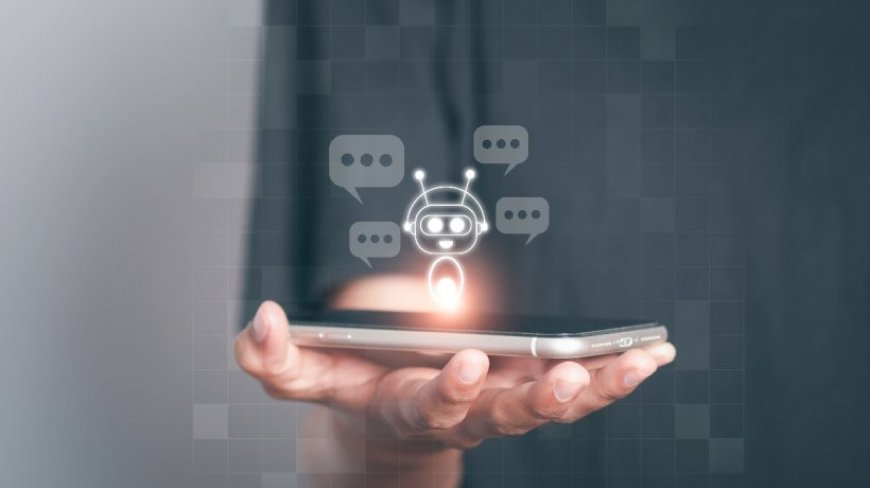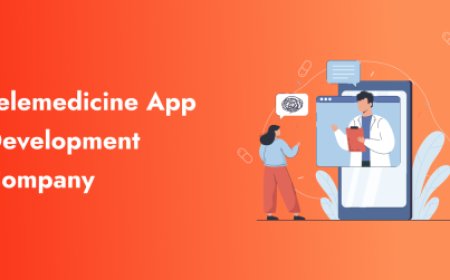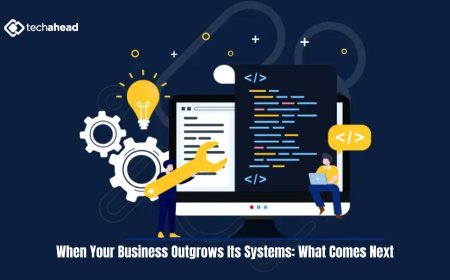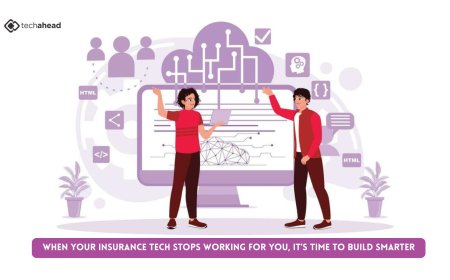AI Agents inside Your Apps: The Shift from Features to Intelligent Companions
In 2025, AI agents embedded within apps are transforming how users interact with digital platforms, shifting the focus from task completion to intelligent assistance.

The mobile app ecosystem is evolvingrapidly. What once were tools loaded with static features are now becoming dynamic companions powered by artificial intelligence. In 2025, AI agents embedded within apps are transforming how users interact with digital platforms, shifting the focus from task completion to intelligent assistance.
This shift doesnt just reflect a change in technologyit represents a change in expectations. Users no longer want apps that only respond to commands. They want apps that anticipate needs, learn behaviors, and adapt to preferences. This is the dawn of intelligent in-app companions, and it's redefining how developers approach mobile app design and functionality.
Even leading development teamssuch as San Antonio app developersare embracing this AI-first paradigm to create smarter, more human-like app experiences that boost retention, engagement, and brand trust.
From Utility to Intelligence: The Evolution of Mobile Apps
Traditionally, apps have focused on solving specific problemstracking fitness, ordering food, scheduling appointments, and so on. These apps were efficient but reactive: they waited for the user to take action.
In contrast, AI agents bring proactivity and personalization to the forefront. They analyze past behavior, predict next steps, and even carry out multi-step tasks without user intervention.
Take these examples:
-
A finance app with an AI agent that not only tracks expenses but proactively recommends savings plans based on recent spending patterns.
-
A healthcare app that monitors symptoms and alerts users about anomalies before they recognize them.
-
A writing app with an AI co-writer that adapts its tone, format, and suggestions to match the users goals and style.
The shift is clear: apps are no longer just toolstheyre evolving into intelligent partners.
What Is an AI Agent in a Mobile App?
An AI agent is a self-operating digital assistant integrated directly into a mobile app. It combines natural language processing (NLP), machine learning (ML), and often large language models (LLMs) to interact with users in a conversational or adaptive way.
Unlike static chatbots or rule-based workflows, AI agents:
-
Learn from ongoing interactions
-
Contextualize user behavior
-
Respond dynamically to changing inputs
-
Execute complex tasks with minimal prompts
These agents can take many formsvoice assistants, embedded chat interfaces, floating sidebars, or even personalized dashboards that shift in real time.
Why Users Are Embracing Intelligent Companions
The adoption of AI agents in mobile apps is being driven by growing user demand for:
-
Convenience AI agents automate repetitive actions (e.g., reordering groceries, managing calendar conflicts).
-
Personalization They fine-tune responses and suggestions to user behavior and preferences.
-
Natural Interaction Voice, gestures, and text-based communication feel more intuitive than traditional UI/UX flows.
-
Proactive Support Users appreciate when apps guide them, rather than just react to input.
In essence, users want their apps to think with them, not just respond to them.
Top Use Cases for AI Agents in 2025
As AI integration becomes more accessible, here are the leading categories using intelligent companions effectively:
Healthcare Apps
-
Symptom tracking with real-time diagnostics
-
AI-driven appointment booking
-
Mental health agents for mood check-ins and cognitive therapy prompts
Productivity & Workflow
-
Smart meeting assistants that summarize calls, extract action items, and schedule follow-ups
-
Email agents that sort, prioritize, and draft responses
E-Commerce
-
AI shopping assistants that help users find products, track prices, and complete purchases based on behavior
-
Voice-guided, hands-free product browsing for accessibility
Finance & Budgeting
-
Predictive spending analysis
-
Fraud detection agents that flag unusual activity
-
Goal-driven financial coaches
Building AI Agents: What Developers Need to Consider
Integrating an AI agent isnt just about plugging in ChatGPT or a voice assistant. It requires:
-
Purpose Definition What will the agent help users do better or faster?
-
Training Data Context-aware data is critical for making accurate predictions or suggestions.
-
User Privacy AI agents must respect data privacy and transparency, especially when handling sensitive data.
-
Seamless UX Integration The agent shouldnt disrupt the user journey but should enhance itappearing when needed and fading out when not.
For app developers and localized teams, incorporating language models, regional behavior data, and culturally relevant prompts is also essential for user trust and satisfaction.
Challenges & Ethical Considerations
With great intelligence comes great responsibility. AI agents in mobile apps must navigate:
-
Bias in decision-making Developers must monitor and fine-tune models to avoid unfair or inaccurate suggestions.
-
Transparency Users should know when theyre interacting with an AI, and what data is being used.
-
Dependency risks Over-automation can disempower users if not balanced with manual options.
Ethical AI development is no longer a nice to haveits a core requirement for long-term success.
Whats Next? The Future of AI-Powered Apps
By 2026 and beyond, well likely see:
-
Multi-agent collaboration within single apps (e.g., a fitness coach working alongside a diet planner)
-
Emotionally aware agents that adjust tone and behavior based on voice or text input
-
Cross-app agents that carry your preferences and behavior from one app to another
Were moving toward an app ecosystem where your digital companion isnt bound to one platformbut follows you across your devices, adapting to your evolving needs.
Final Thoughts
The rise of AI agents inside mobile apps marks a pivotal shift from feature-rich tools to human-like companions. They bring intelligence, empathy, and adaptability into the palm of the users handand theyre setting new standards for what people expect from their digital experiences.
For developers and businesses, embracing this trend isnt just about keeping upits about leading with innovation. Whether youre building a meditation app or a B2B dashboard, integrating an intelligent in-app agent can be the key to deeper engagement, stronger retention, and a future-ready user experience.







































